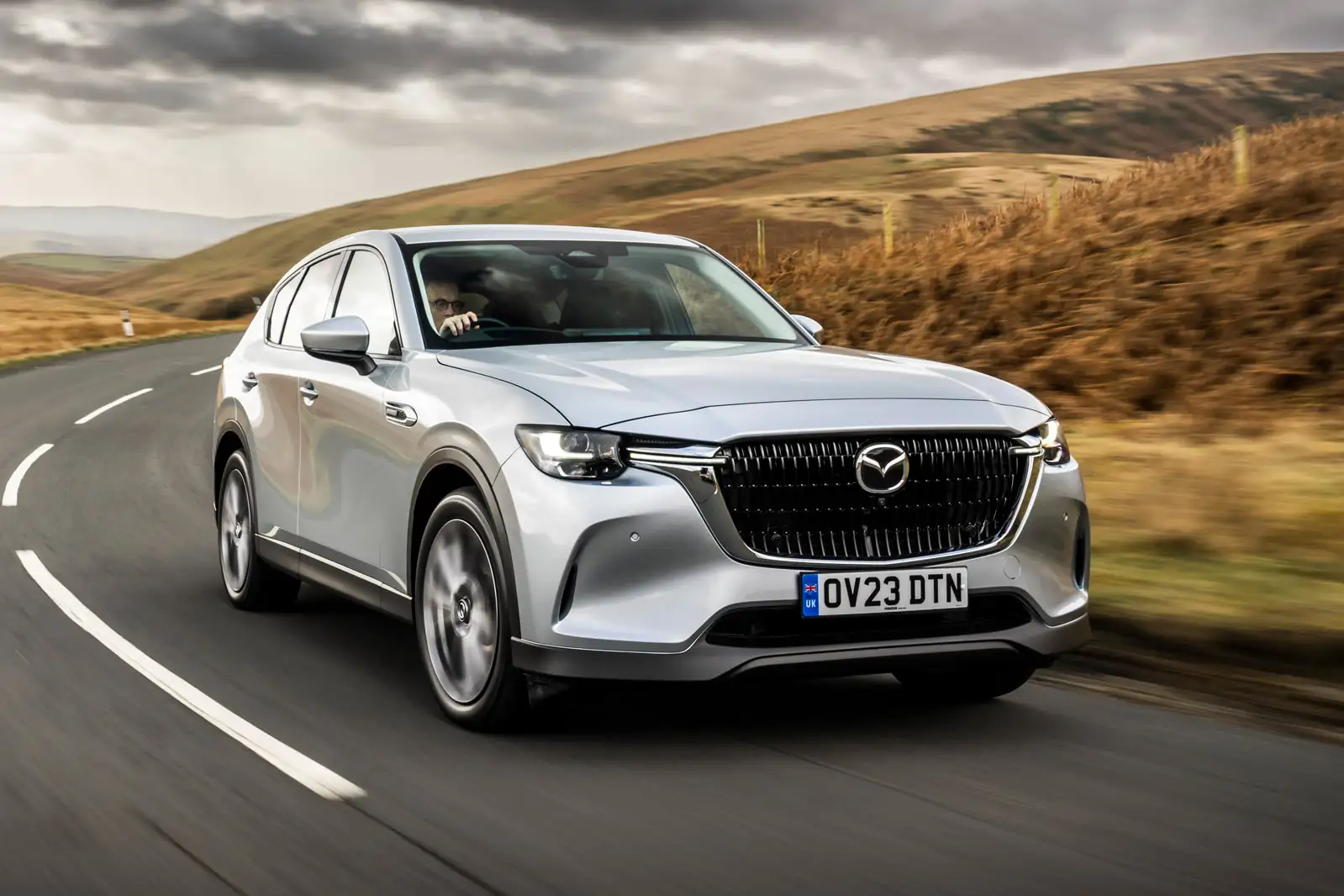You might look at the 3.3-litre capacity of the Mazda’s straight six and wonder how it manages to make only slightly more power (197bhp) than the BMW X3 20d’s 2.0-litre (188bhp). For comparison, that’s a specific output of just 60bhp per litre for the Mazda, versus 94bhp per litre for the BMW. The thing is, that is deliberate: to a point, an understressed six-cylinder will be nicer to drive and more economical than a harder-working four. That’s Mazda’s theory, and it claims a thermal efficiency of 40%.
To make matters worse on paper, our rear-wheel-drive CX-60 was 57kg heavier than the four-wheel-drive X3. Both cars use very similar gear ratios, so it appears the slightly higher torque saves the day for the CX-60, because it proved a fair bit faster than the BMW in all metrics. Most notably, it was quicker to 60mph by 0.7sec, and by as much as 2.2sec from 30-70mph in fourth gear. For outright speed from a standing start, although not in-gear pace, the Alfa Romeo Stelvio still has the Mazda beaten.
As an experience, the CX-60 diesel is novel in how old-fashioned it is. It takes a few revolutions longer to fire than most cars, and at low revs and low loads, especially with the oil still coming up to temperature, the engine clatters like a city bus. First impressions are certainly that this is not a particularly refined powerplant. You can even feel the vibrations at idle.
But get some heat into the engine and some revs on the tacho, and you can tell that it switches to a different cycle, and acquires that smooth but unstressed straight-six diesel sound. It spins to the redline quite happily, too. The best thing about a big diesel like this is the rich seam of effortless mid-range torque, ready to be mined. A plug-in hybrid might be faster under full-bore acceleration but will always feel and sound like it’s working much harder.
If you like a bit of mechanical interaction, you will probably enjoy the honesty of this new engine, because most of the time the gruffness isn’t intrusive, but it’s also a far cry from the hush of EVs.
The mild-hybrid system does work hard to silence the engine by shutting it down when coasting down hills. The system works well in that it’s not overly keen to kill the engine, but it’s not always perfectly smooth when re-engaging drive.
The eight-speed automatic is smooth and responsive and picks its shift points cleverly. That’s a surprise given the same gearbox can be very clunky in the PHEV.
The brakes, which operate via a by-wire system, are exemplary, too. Despite some damp patches on the track, the CX-60 stopped in the same distance as the Audi SQ5 did in the dry, and the feel from the pedal is reassuringly firm, making smooth stops child’s play.

